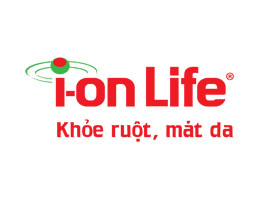Personal Data in Gambling: What’s Collected and How It’s Protected
Transport Layer Security (TLS) is a technology https://22betofficial.com/ that encrypts data sent over the Internet. As online gambling increases, the companies responsible for our bets become targets of increasing cyberattacks from gangs interested in the money. Advanced hackers use the internet to commit fraud, steal money, and cause problems for companies.
- Operators serving players from multiple jurisdictions must navigate data protection laws and apply multiple security measures.
- Operators should prioritize employee training programs to raise awareness about cybersecurity best practices.
- The collection and protection of personal data in the online gambling industry is an evolving challenge.
- In a crowded market, platforms with superior security measures stand out, giving them a competitive edge.
Overview of Trends in Polish Casinos
This guide explores how blockchain is driving innovation in online betting, its key benefits, and what players need to know before using cryptocurrency in gambling. In an increasingly digital landscape, cybersecurity is paramount for the gambling industry. By implementing robust security measures, operators can safeguard player data, protect against cyber attacks, and ensure a safe and trustworthy gambling environment. Prioritizing cybersecurity not only protects the interests of players and operators but also contributes to the overall growth and sustainability of the industry.
Cryptocurrencies are also playing a growing role, offering fast, borderless payments with lower fees and greater privacy. These changes are making gameplay smoother and more secure, while also paving the way for decentralized systems and games built on smart contracts. As more platforms adopt these tools, blockchain gambling is starting to reshape the iGaming business, influencing how casinos grow, operate, and build player trust. As online gambling continues to surge in popularity, players are understandably concerned about the security of their financial information. This is where SSL encryption comes in, acting as a digital shield that protects sensitive data during transactions. Here in Southeast Asia, for instance, many players choose trusted platforms like 1xBet Taruhan Online, which prioritize user security by employing robust SSL encryption.
Top 10 best practices to secure your online casino and build players’ trust
SSL is a standard security technology that establishes an encrypted connection between a user’s browser and the gambling platform. Most reputable online casinos, including those catering to online gambling in Texas, display a padlock symbol in the browser’s address bar, indicating SSL encryption is active. As blockchain technology advances, more online casinos are adopting crypto-based payment systems, making gambling more transparent and efficient. The battle against fraud in online casinos is not only a technological challenge but also a regulatory imperative. Compliance frameworks and regulatory requirements play a pivotal role in shaping the industry’s response to fraud.
Running on a blockchain, smart contracts are decentralized, secure, and transparent. Much like what’s being developed in metaverse casinos, this kind of digital ownership encourages more than just repeated play. It gives players a reason to stay invested — not only for immediate returns, but also to grow a personal collection that could gain value over time. Many decentralized gaming platforms don’t ask for full ID verification, letting you play straight from your wallet. This level of financial security and anonymity is one of the biggest reasons why many gamblers are switching to crypto-based betting platforms. The dynamic and adaptive nature of fraud necessitates equally sophisticated detection mechanisms.
This encryption prevents hackers from accessing sensitive data like payment details and personal information. SSL and TLS protocols achieve this by encrypting information exchanged between the user’s browser and the gambling platform’s server. Returning to the digital gambling landscape’s origins in the 1990s, we witness a remarkable evolution. It has grown from a niche hobby into a multi-billion-dollar juggernaut, captivating players globally. This process ensures fairness and reduces the risk of payout disputes, giving players peace of mind. In some countries, they are fully permitted and licensed, while in others they may be restricted or operate in a legal gray area.
Online casinos can leverage AI for player behavior analysis, anomaly detection in financial transactions, and the identification of collusion patterns. Continuous learning models allow these systems to evolve and adapt to new fraud schemes, providing a proactive defense against emerging threats. Furthermore, the rise of the metaverse and virtual reality platforms will introduce new transactional ecosystems, necessitating advanced security protocols to protect users and businesses. As technology evolves, so do the challenges and solutions related to transactional security. Innovations such as biometric authentication, blockchain integration, and quantum encryption are poised to redefine how security is approached in gaming and gambling. Blockchain provides transparency and immutability in transactions, making it an effective tool for preventing fraud and ensuring secure payments.








































